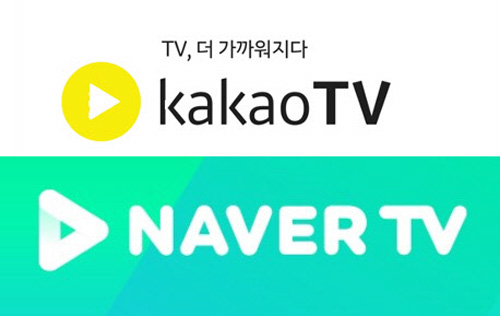Google torturing ICT Korea…Naver & Kakao in unfavorable position for ‘production cost & competitiveness’
Kang Eun Seong | esther@ | 2017-10-24 10:52:37

Issue analysis, Google torturing ICT Korea , should it be left in this way (second part)
[Digital Times, Kang Eun-seong] Naver and Kakao, which are evaluated as having a "superior position" in the domestic internet market, have been greatly affected by foreign companies in terms of sales such as advertising revenue as well as new media platforms such as video and messenger. In recent years, the status that has been unfamiliar with many marketing activities such as foreign portals has shook sharply in recent 2-3 years. In the related industry, it is analyzed that these native content providers (CP) are significantly unfavorable in terms of cost competitiveness compared to Google and Facebook.
According to the industry on October 23, Naver TV`s video market share of the Naver video platform is only 2.6%. Kakao TV, which has moved the next TVPot to a new platform, is also unable to open its market in the video market.
And the reason is simple. Unlike other video platforms that are struggling to break through, Google YouTube has little to say. Naver TV and Kakao TV are also not as fast as YouTube. However, they pay the network operator (ISP, three communication companies) for the high-volume traffic. Unlike Naver, YouTube does not pay network fees.
Meanwhile, ‘Quality’, which is sensitive to viewers, also plays a part in YouTube. In case of Naver TV, the maximum image quality is HD (720p). Mainly, the picture quality is 480p which is normal level. We can see it on a large monitor, but when you connect it to a TV in the era of `Smart Home`, the picture quality is getting worse. YouTube, however, has a maximum 1080p picture quality at full HD.
Naver does not have a ‘technology’ to improve video content quality at 1080p at YouTube level. An expert of the Internet portal industry said, "Naver is paying KRW 20 billion annually for high-traffic traffic such as video, and if it is raised to 1080p, the traffic fee may be double, not double," he said. I cannot invest in improvement of picture quality because it does not exist."
The ‘copyright law’ which Naver TV or Kakao TV adheres to is also a disadvantage compared to YouTube. They observe the domestic copyright laws to pre-screen content such as copyrighted TV programs. Popular video content served through Naver TV is a video that deals with copyright contracts with the broadcasting company or contents producer. Pornography or mystery, even defined as "digital sexual violence,’ cannot be searched without adult authentication at all.
By the way, if you go to YouTube, you can see all this content for free, without any adult certification. A representative in the content industry stated, "After the broadcast ends, the in-house dedicated team goes into search for" copyright violation post. "There are a lot of posts that hang the whole program. Anonymous expert also said. "But if you blind one post, there will be more than 100 illegal work postings."
For viewers, YouTube is always more attractive, because it is seamless, has good quality, and can be viewed for free. YouTube has ramped up to 73% of the video media market at once, thanks to its video delivery speed, image quality competitiveness, and content management policies that go from "illegal and illegal." Domestic companies will be classified as monopolist if they have a market share of more than 70% according to the Fair Trade Act, but they are subject to various regulations, but YouTube is not subject to any restrictions because it is a "US company."
This phenomenon is worsening in the Korean Internet market as well as in the video sector. Band and Kakao Story, which are social network (SNS) services, still dominate in terms of "monthly users". However, Facebook and Instagram, which are foreign platforms, are growing at a horrific moment. According to the APE Analytics report for the mobile app analyst firm, the band and the Kakao Story are about 15 million people and 13 million people, respectively, compared to 13 million and 10 million people respectively. If we add up the shares of the two affiliated companies, you have already surpassed the native SNS. This is also due to the fact that Facebook is not paying the network fee properly but native SNS is pushing its related costs out of cost competitiveness. It is because CPR has no `fitness` to follow while Facebook is saving cost of 100 billion won per year and developing competitiveness by developing VR contents or artificial intelligence.
The ad market, which is the livelihood of Internet companies, is already dominated by global CPs. According to the Korea Advertising Federation, video ads on Google and Facebook reach about KRW 300 billion each in the first half of this year.
"It does not mean that we will not pay for the network like Google or Facebook," stated an Internet industry representative. "There is no change in the idea that we have to pay for the business at a fair cost as a Korean company. And "fair competition" itself has not been achieved as long as the business continues without being subject to any restrictions on its dominant position. The official said, "Someone has to solve the problem of discrimination by foreign companies like this, and it is urgent for the government and industry to jointly respond."
By Kang Eun Seong esther@
